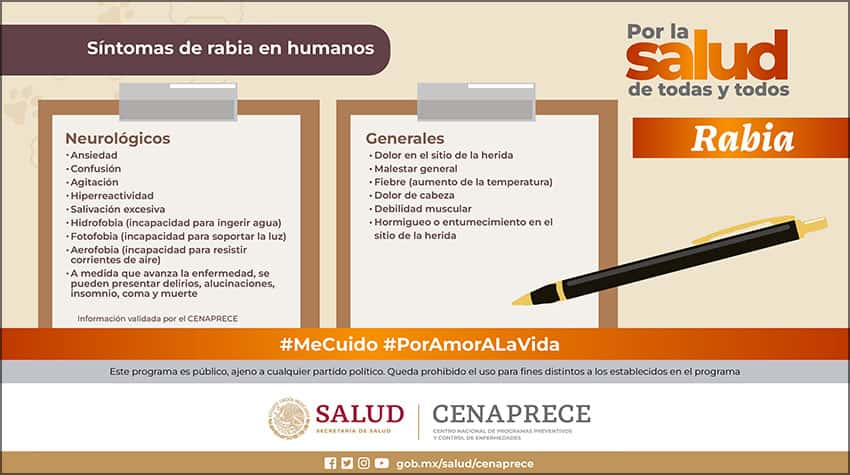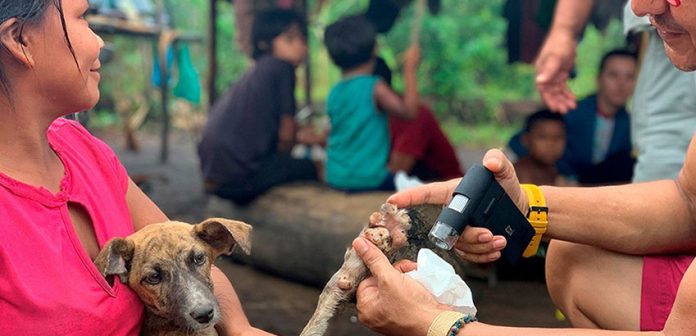Public health authorities issued a warning Tuesday that rabies cases in humans are increasing in Mexico.
The alert was directed toward all hospitals, Hospital Epidemiological Surveillance Units and members of the National Network of Public Health Laboratories, as well as toward the general population.
The National Epidemiological Surveillance System (Sinave) has sent information on how to deal with a suspected and/or confirmed case of rabies to all medical units throughout the country.
“Any suspected, probable or confirmed case of human rabies must be registered in medical care establishments and be reported to Sinave,” the circulated document said.
The warning also includes advice for the general population, including to avoid contact with wild animals, to vaccinate pets against rabies and to keep pets away from wild animals.

Over the last two months, health authorities have confirmed three rabies cases in humans and are closely monitoring 13 other possible cases, the most recent of which involves nine people who came in contact with an infected dog in Sonora. The state’s Health Ministry had just announced in late September that it had gone 30 years without even a suspected case of human rabies in the state.
If one of the nine cases is confirmed, it will be the first time a human in Mexico has contracted rabies from a dog since 2005.
Another case concerns a woman in Nayarit who contracted the virus after she was attacked by an unvaccinated domestic cat. A human infection contracted from a domestic cat has not been reported in Mexico in over 10 years.
Earlier this month in Oaxaca, a seven-year-old boy and his eight-year-old sister died after being bitten by a bat carrying the disease in December. Health authorities heavily criticized the case, as weeks passed before they were diagnosed and hospitalized.
“The first six hours are what make the difference between life and death,” said Concepción Rocío Arias, the director at the hospital where the children were admitted, referring to the time limit for the rabies vaccine to positively impact a patient.
However, Deputy Health Minister Hugo López Gatell, when asked about the case by a reporter on Dec. 27, noted that the children came from an extremely poor, rural community with medical services about a two-hour drive away and with many wild animals possibly carrying the disease.

Three other cases have been reported in Oaxaca this month.
In 2019, the World Health Organization (WHO) declared Mexico the first country to have eliminated canine-transmitted rabies as a public health problem. In the Americas, cases of rabies transmitted by dogs decreased from 355 in 1983 to only two in 2020.
Most, or 66%, of rabies cases in humans in the Americas are transmitted by wild animals. The fatality rate of the illness is nearly 100% once symptoms appear.
The United States does not require proof of rabies vaccination for pets entering the country from Mexico, as it is not considered a country at high-risk for rabies. Canada recently tightened rabies restrictions to prohibit all pets from high-risk countries from entering the country, regardless of their vaccination status.
It is unclear if recent cases will impact Mexico’s low-risk status.
With reports from El País
